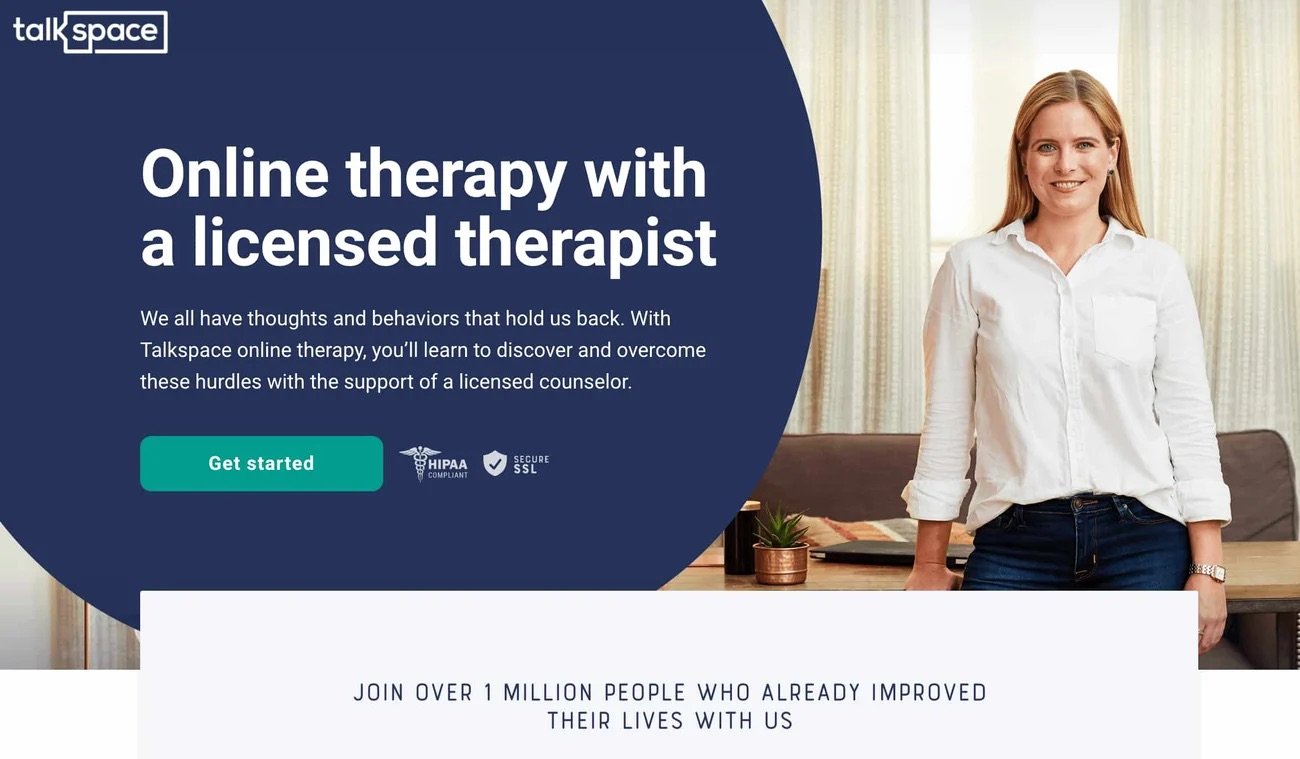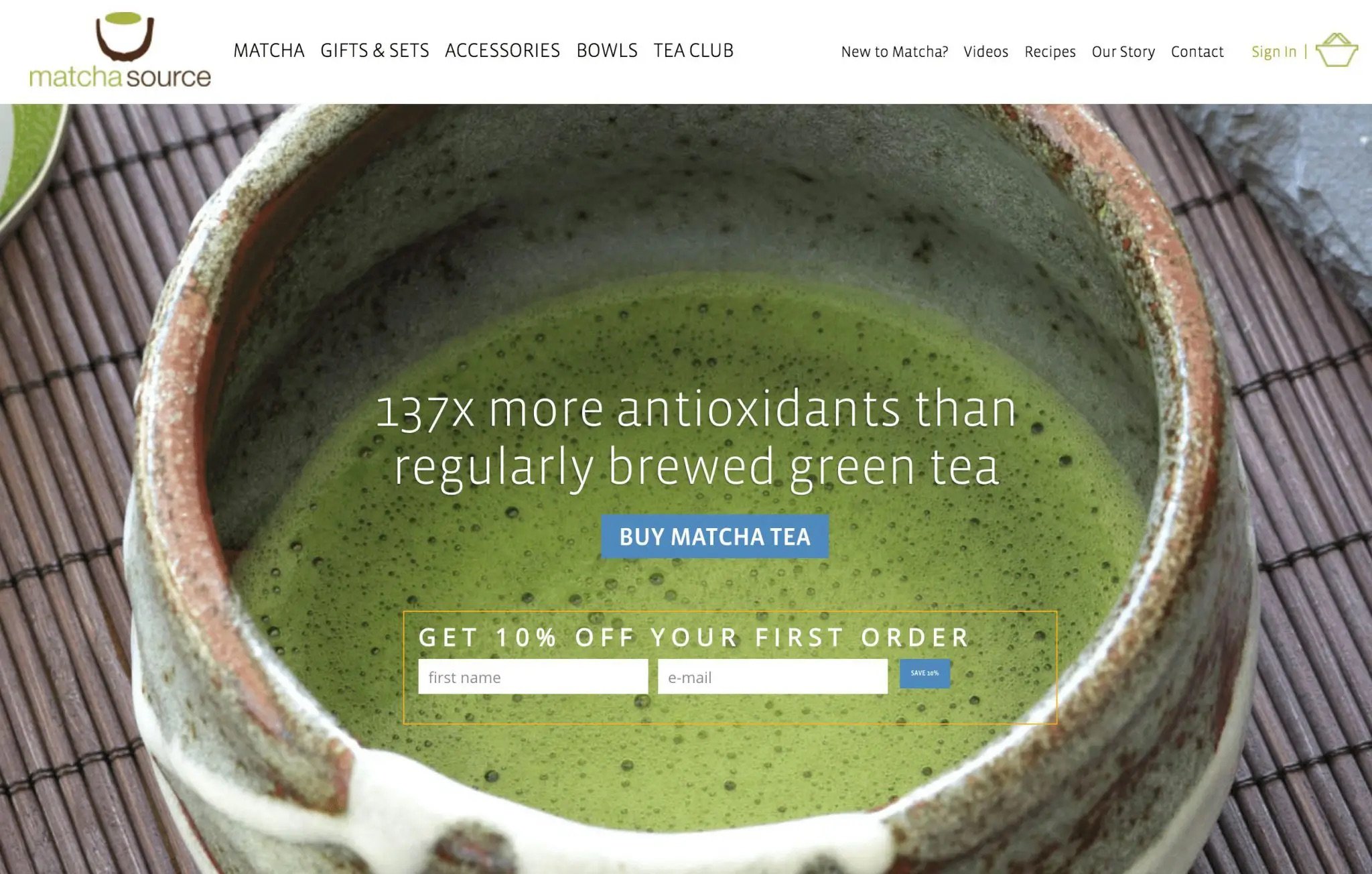Landing Pages vs. Websites: Do you know the difference?
Let’s Break It Down
A Website consists of a homepage and various other pages and can be easily explored with a navigation menu. A website should explain your business, what you do, and the products and/or services you offer to potential customers. Think of your website as your brand’s way of making a first impression online.
For example, our website consists of a homepage, an About section, a separate blog page, pricing, services pages, and more.
Website Example: RevKey Homepage
On the other hand, a Landing Page is a stand-alone web page with a specific purpose. Typically, they are built with the goal of making conversions. Some good examples include signing up for a newsletter, downloading a piece of thought-leadership material, or making a sale.
With that in mind, a good landing page will have lots of characteristics that encourage visitors to convert. You’ll also want to minimize distractions so visitors can focus on the landing page’s call to action.
A good note to add is that a landing page can also be a stand-alone website with different sections all leading to a clear call to action.
Landing Page Example: Talkspace lead capture page
For a quick and easy reference, here’s a table that highlights the key differences between landing pages and websites:
When to use a Landing Page
Knowing whether or not you need a Landing Page or an entire website really depends on what your end goal is. Suppose you need to launch a product quickly, establish a simple online presence for your business, or get registrations for an upcoming event/webinar. In that case, a landing page is going to be the quickest & easiest option.
For more examples let’s take a closer look at when using a Landing Page will be your best bet.
Advertising - When running any marketing campaign with advertisements, it’s an excellent idea to link your ad with a specific landing page. When people click on your ad they’ll be directed to a dedicated landing page with all the information needed to drive them to convert.
Gong LinkedIn Ad driving people to a landing page with gated Ebook content
Lead Capture - This is a great technique for gaining a prospect's contact information. Typically lead capture pages offer some type of helpful content that the user is interested but it’s gated so they won’t be able to access the info until they give you their contact information.
Examples: Ebook, Webinar, Create an account, or Free Trial
Matcha Source offers 10% off first order in exchange for name and email details
User Notices - Landing pages aren’t just limited to sales. Sometimes you need a user-friendly page for important updates, like your website is under construction, or you’re temporarily down for maintenance.
Testing - Websites take a lot more work to create & maintain than a landing page so it makes more sense that if you want to test something you should use a landing page instead. Landing pages are specific and typically have a single call-to-action (CTA) so it can be very easy to switch up some details to see which versions produce the best results and lead to more conversions.
Here are some testing ideas: change up the copy, use different images/videos, and switch up the page elements (button color, remove unnecessary info, etc.)
When to use a Website
Now let’s say you want to create an online presence that defines your brand and can inform users about the ins and outs of your product/service, create an online store, start a blog, and more, then it makes sense to create a website instead.
Let’s review some other use cases in more detail.
Brand Story - As mentioned briefly above your website is what should be used to fully describe who your brand is and why you’re offering your products/services. Landing pages should be used more with short-form content, explaining who you are and what your business does should go into much more detail than what is deemed acceptable for a single landing page. This is where you use an About page, FAQ page, contact us page, and any other page that you think you might need to accurately convey what it is your business can offer.
Products and Services - when people search the internet for their general interests (i.e. digital marketing, online therapy, shoes, etc.) they may not know right away what it is they’re looking for or what they want, this is where we rely on the internet to give us our best options so we can make informed decisions. And this is where your website can be the ideal place to show what you offer and encourage users to dive deeper for the information they need.
Examples of how to do this include creating an online store, location pages, and service pages.
Boba Love eCommerce store
User Functionality - Say you want users to be able to order online or make appointments then you will need different pages specifically on your website to allow this. While a landing page is a great place for a signup form, you’ll need multiple web pages to offer the type of functions listed.
Denver Men’s Therapy Appointment request
Search Engine Optimization (SEO) - SEO helps people find your website through search results by optimizing your web pages and blog posts with words and phrases users are searching for. The benefits are way more significant with websites over landing pages because landing pages are limited by narrower search terms, while websites can target many.
You’re all set!
We hope this article helped you learn the difference between a landing page and a website. Now all that’s left is to use this knowledge to create the online web pages that are right for you and watch your business take off.
If you found this article helpful, please follow us on Facebook and LinkedIn for more useful tips and tutorials.









